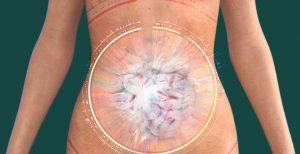Small intestinal bacterial overgrowth (SIBO)
 SIBO is a condition in which bacteria overgrow in the absorptive area of the small intestines. SIBO can leads to symptoms such as diarrhoea, constipation, IBS, abdominal cramping, bloating, flatulence, burping, reflux, food sensitivities, joint pain, skin rashes and deficiencies in Iron and B12, just to name a few. SIBO can occur when the ileocecal value (which connects the large intestine and the small intestine) is dysfunctional, allowing large intestinal bacteria to migrate upwards into the small intestine.
SIBO is a condition in which bacteria overgrow in the absorptive area of the small intestines. SIBO can leads to symptoms such as diarrhoea, constipation, IBS, abdominal cramping, bloating, flatulence, burping, reflux, food sensitivities, joint pain, skin rashes and deficiencies in Iron and B12, just to name a few. SIBO can occur when the ileocecal value (which connects the large intestine and the small intestine) is dysfunctional, allowing large intestinal bacteria to migrate upwards into the small intestine.
So how does SIBO affect you? SIBO causes damage to the surface of the small intestine, which inhibits the ability of the body to absorb nutrients from food, leading to malabsorption of vitamins and minerals. Fermentation by bacteria causes hydrogen, methane and hydrogen sulphate gasses which damage the intestinal wall and cause uncomfortable symptoms. When the gut is damaged, larger particles of food are able to pass through which can cause an immune response such as skin rashes or acne.
How did you get SIBO in the first place?
– Stomach infections from either a virus, bacteria, bacterial toxins or parasites
– Particular chemicals or drugs
– Over consumption of simple carbohydrate
– Medications
– Stress
– Surgical interventions that cause scarring and adhesions which alters the anatomy of the small intestines
– Colonisation of bad bacteria after a caesarean birth or not breastfeeding
Other conditions associated with SIBO – chronic fatigue, fibromyalgia, IBS, chronic constipation, Crohn’s disease, ulcerative colitis, reflux, celiac disease, interstitial cystitis, restless leg syndrome, acne rosacea, diabetes, hypothyroidism, scleroderma, chronic prostatitis, liver cirrhosis and diverticulitis.
Here at Core, we work with the Bi-Phasic diet, which follows a phased approach to diet and treatment. This phased approach limits the side effects of bacterial “die off”. This approach also aims to prioritise the repair of disturbed digestion, which means you’ll feel better sooner!
The first phase of the diet focuses on reducing fermentable starches and fibres, which is necessary to starve bacteria of their preferred fuel. Repairing damage to the integrity of the intestinal lining, as well as repairing proper digestion is imperative in this phase.
The second phase involves the use of antimicrobials to remove any remaining overgrown bacteria and fungi from the small intestines. This phase also focuses on restoring the normal motility of the small intestines in order to prevent relapse.
The goal after completely the protocol is to expand your diet as much as possible – it’s never advised to stay on a restrictive type diet for more than necessary as this leads to more sensitivities and reactivity down the track.
Are you someone who thinks you may have SIBO? Please don’t hesitate to get in contact with our practitioners so they can point you in the right direction towards better health.

